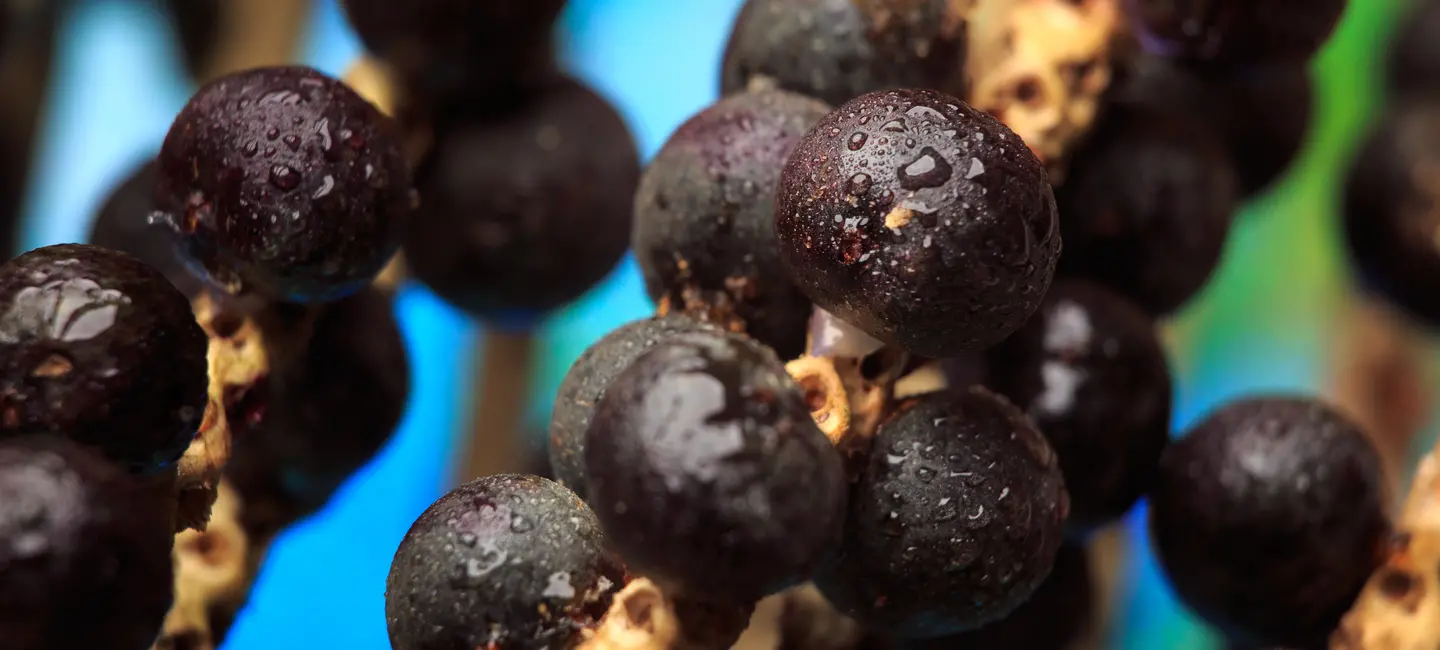
Acai (Euterpe oleracea), pronounced AH-sigh-EE, is a palm tree found throughout South America. Its berries are dark purple and used to make medicine.
Acai contains antioxidants which are thought to protect cells from damage. Acai berries are believed to have more antioxidant content than cranberry, raspberry, blackberry, strawberry, or blueberry. Chemicals in acai might also reduce swelling, lower blood sugar levels, and stimulate the immune system.
People commonly use acai for athletic performance, high cholesterol, erectile dysfunction (ED), obesity, aging skin, metabolic syndrome, and many other conditions. But there is no good scientific evidence to support these uses.
Is It Effective?
There is interest in using acai for a number of purposes, but there isn't enough reliable information to say whether it might be helpful.
Is it Safe?
When taken by mouth: Acai is possibly safe when used for up to 3 months. It's usually well-tolerated. But be aware that raw acai juice can be contaminated with parasites. In rare cases, drinking the raw juice has been linked to outbreaks of a disease called American trypanosomiasis or Chagas Disease.
Special Precautions & Warnings:
Pregnancy and breast-feeding: There isn't enough reliable information to know if acai is safe to use when pregnant or breast-feeding. Stay on the safe side and avoid use.
Diabetes: Acai might increase or decrease blood sugar by a small amount, but this probably isn't a big concern for most people.
Medications for diabetes (Antidiabetes drugs)
Interaction Rating=Moderate Be cautious with this combination.
Acai might lower or raise blood sugar levels. Taking acai along with diabetes medications might cause blood sugar to drop too low or reduce effects of the medications. Monitor your blood sugar closely.
Herbs and supplements that might lower blood sugar: Acai might lower blood sugar. Taking it with other supplements with similar effects might lower blood sugar too much. Examples of supplements with this effect include aloe, bitter melon, cassia cinnamon, chromium, and prickly pear cactus.
There are no known interactions with foods.
As a food, the acai berry is eaten raw and as a juice. The juice is also used in beverages and in ice cream, jelly, and liqueurs.
In supplements, there isn't enough reliable information to know what an appropriate dose of acai might be. Keep in mind that natural products are not always necessarily safe and dosages can be important. Be sure to follow relevant directions on product labels and consult a healthcare professional before using.
Açaï, Acai Berry, Açaï d'Amazonie, Acai Extract, Acai Fruit, Acai Palm, Amazon Acai, Amazon Acai Berry, Assai, Assai Palm, Baie d'Açaï, Baie de Palmier Pinot, Cabbage Palm, Chou Palmiste, Euterpe badiocarpa, Euterpe oleracea, Extrait d'Açaï, Fruit d'Açaï, Palmier d'Açaï.
Information on this website is for informational use only and is not intended to replace professional medical advice, diagnosis, or treatment. While evidence-based, it is not guaranteed to be error-free and is not intended to meet any particular user’s needs or requirements or to cover all possible uses, safety concerns, interactions, outcomes, or adverse effects. Always check with your doctor or other medical professional before making healthcare decisions (including taking any medication) and do not delay or disregard seeking medical advice or treatment based on any information displayed on this website.
© TRC Healthcare 2024. All rights reserved. Use and/or distribution is permitted only pursuant to a valid license or other permission from TRC Healthcare.
